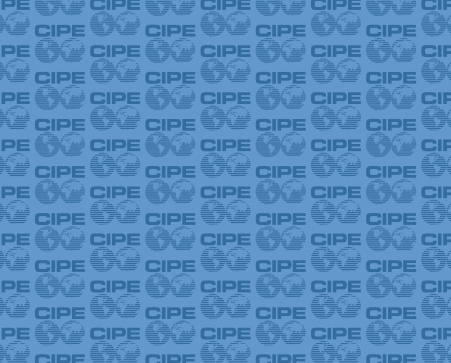
At a recent conference on global women’s leadership at the US State Department, the managing director of International Monetary Fund, Christine Lagarde, remarked that the answer to today’s economic crisis is collective action.
“There is no economy in the world, whether low-income countries, emerging markets, middle-income countries or super-advanced economies that will be immune to the crisis that we see not only unfolding but escalating…It is not a crisis that will be resolved by one group of countries taking action. It is going to be hopefully resolved by all countries, all regions, all categories of countries actually taking action.”
A holistic approach to solving global challenges is needed, she said, and that includes involving women in the picture.
More than 15 years have passed since the signing of the Beijing Declaration on women’s rights, but women remain under-represented in social, political, and economic spheres. Women hold less than 20 percent of all parliamentary seats. Women’s nominal wages are 17 percent lower than men’s. Moreover, women represent 70 percent of the world’s poor even though they perform over 60 percent of the world’s work. And the global economic crisis has further exasperated the situation – according to the ILO, the crisis is expected to plunge a further 22 million women into unemployment, raising the female unemployment rate to 7.4 percent (versus 7 percent male unemployment).
Yet, just as many leaders and academics have repeatedly argued, societies improve “when women have the power to make their own economic and social choices. ” CIPE recognizes that building a healthy democracy requires ensuring fair and open economic, political, and civic participation of women. As Secretary Hillary Clinton recently stated, gender equity isn’t simply about fairness, but about expanding the talent pool to help tackle the world challenges in a democratic fashion.
“If you’re trying to solve a problem, whether it is fighting corruption or strengthening the rule of law or sparking economic growth, you are more likely to succeed if you widen the circle to include a broader range of expertise, experience, and ideas. So as [the world works] to solve… problems, we need more women at the table and in the halls of parliament and government ministries where these debates are occurring…”
But changing society’s mindset takes time and effort, and it needs everyone – the government, private sector, and civil society – to work together.
To this end, CIPE works with various actors to create environments that enable the removal of institutional barriers to women’s participation. In Bangladesh, CIPE worked with the Bangladesh Women Chamber of Commerce and Industry, who were advocating for a change in banking rules to ease access to credit for women entrepreneurs. Due to these changes, nearly $23 million has been provided to over 3,000 women entrepreneurs, helping to create around 20,000 new jobs.
Similarly in Pakistan, CIPE worked with chambers of commerce who were trying to reform the national trade ordinance law in 2006. For the first time in the country’s history, women are now allowed to establish their own associations without male sponsorship. And this new regulation produced a positive effect – by 2010, more than more than 2,000 members had joined eight women’s chambers throughout the country, and the number of women executives in major chambers and associations in Pakistan grew to 60, when nearly none had existed in prior years.
As the eurozone crisis intensifies, Tunisia leads the way for Arab democracy, and former Soviet countries such as the Kyrgyz Republic slowly become more market-oriented and hold democratic elections, societies throughout the world must re-examine how women can play a role in improving social and economic conditions. We can’t afford to overlook women’s lack of participation as simply “cultural barriers.” Engaging with women – and involving more women into dialogues – is key for societies to move forward.
Published Date: January 03, 2012
